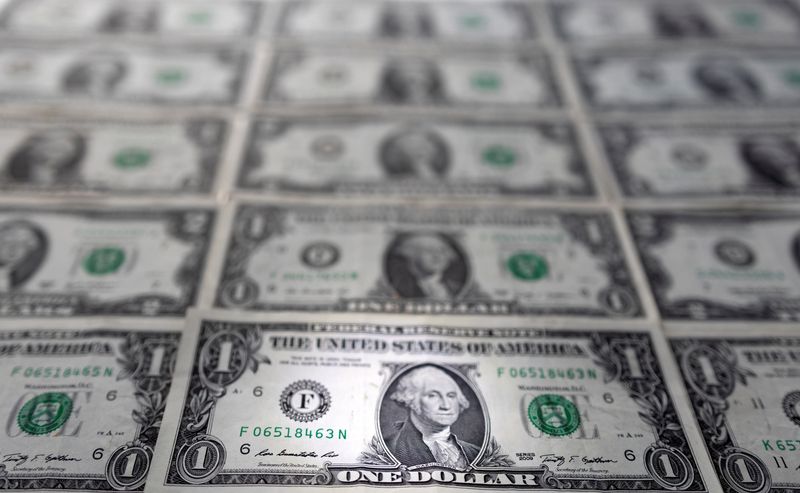By Shankar Ramakrishnan
NEW YORK (Reuters) -A type of derivative trade that became popular with companies over the past year to save on interest costs is seeing demand slow, with risk increasing that the bets could backfire as the Federal Reserve nears the end of its policy tightening cycle.
The so-called pre-issuance hedges are derivative trades in bond markets that seek to make money from a bet that interest rates will rise, allowing the company to then apply the profit to offset the cost of debt issuance in the future. In essence, they lock the interest rate on a future bond sale.
Such hedges are particularly useful for companies that expect to issue debt a few months out but anticipate interest rates will rise. Companies such as home improvement store Lowe's and drugmaker Merck have made millions of dollars through these hedges in recent months, securities filings show.
The success of these hedges, however, depends on timing. If interest rates unexpectedly fall, the trade could saddle the company with large losses instead.
With the Fed approaching the peak of its rate hiking cycle and the market deviating from the central bank's guidance on how long rates will be kept high amid economic uncertainty, it is getting harder to predict the future course of rates. The risk the trade will lead to a loss instead is increasing, several bankers said.
"The risk of falling Treasury yields seems more plausible than rates moving significantly higher," said Richard Wolff, head of U.S. syndicate for Societe Generale (OTC:SCGLY).
"So some CFOs may be reluctant to use derivative strategies to lock in rates here because if things move against them, they may not want to go to their boards and say they were taking a $5 million hit on a bad derivative bet," he said.
Scott Shulte, a senior debt capital markets banker at Citigroup (NYSE:C), said the demand for such trades at current yields was diminishing. Those that were still considering the trades were taking on shorter-term hedges, such as intra-day or intra-week bets, rather than longer-term bets like they did last year due to the mixed perception on the direction of U.S. rates, he added.
IN VOGUE
The developments show how it is getting harder for companies to navigate the rate and economic environment.
Derivatives were seldom taken up by companies in an era of near-zero interest rates before 2022, as they exposed them to risks that were not strictly business-related. They came into vogue as the Fed embarked on its fastest rate increase cycle since the 1980s.
Reuters could not determine the overall value of these trades, which are done bilaterally mostly between companies and banks. But a review of filings and interviews with the bankers show they have grown.
The trades include a complex set of bets - a wager that 10- and 30-year Treasury bond will fall; and swaps, in which fixed interest rate liabilities are exchanged for floating interest rates.
If 10-year Treasury yields rose 50 basis points after a $500 million hedge, for example, a company could save as much as $2.5 million through these hedges, according to Amol Dhargalkar, managing partner of Chatham Financial.
The 10-year Treasury rose 200 basis points since January 2022.
"With the speed at which rates rose in the past year, not taking on a hedge would have been a riskier option for companies," said Dhargalkar. "It comes down to how confident you are that rates won't move unexpectedly on the issuance date."
PROFITABLE BETS
Several companies have entered into such hedges. Lowe’s (NYSE:LOW) settled some $2 billion of forward interest rate swap contracts in March 2023 and made a $247 million profit, a regulatory filing showed.
It also settled similar contracts for $1.5 billion in March 2022, and made a $143 million profit then. Shiv Vasisht, co-head of global rates and currencies solutions at BofA Securities, said the biggest demand for such products was from companies that planned to issue bonds to fund deals and other strategic activity.
For example, Kenvue, which issued $7.75 billion in bonds to fund its separation from Johnson & Johnson (NYSE:JNJ) in March, said in a regulatory filing it had entered into swaps in the fourth quarter of 2022. As of January 1, it said the net gain on derivatives was $10 million after-tax.

Similarly, Merck entered into pre-issuance hedges in March and April worth $700 million ahead of a $6 billion bond deal to fund its acquisition of Prometheus that was priced in May.
As long as there was uncertainty, companies will be interested in taking on such hedges, said Amy Yan, co-head of global rates and currencies solutions at BofA Securities. It is about "sound risk management," she said.